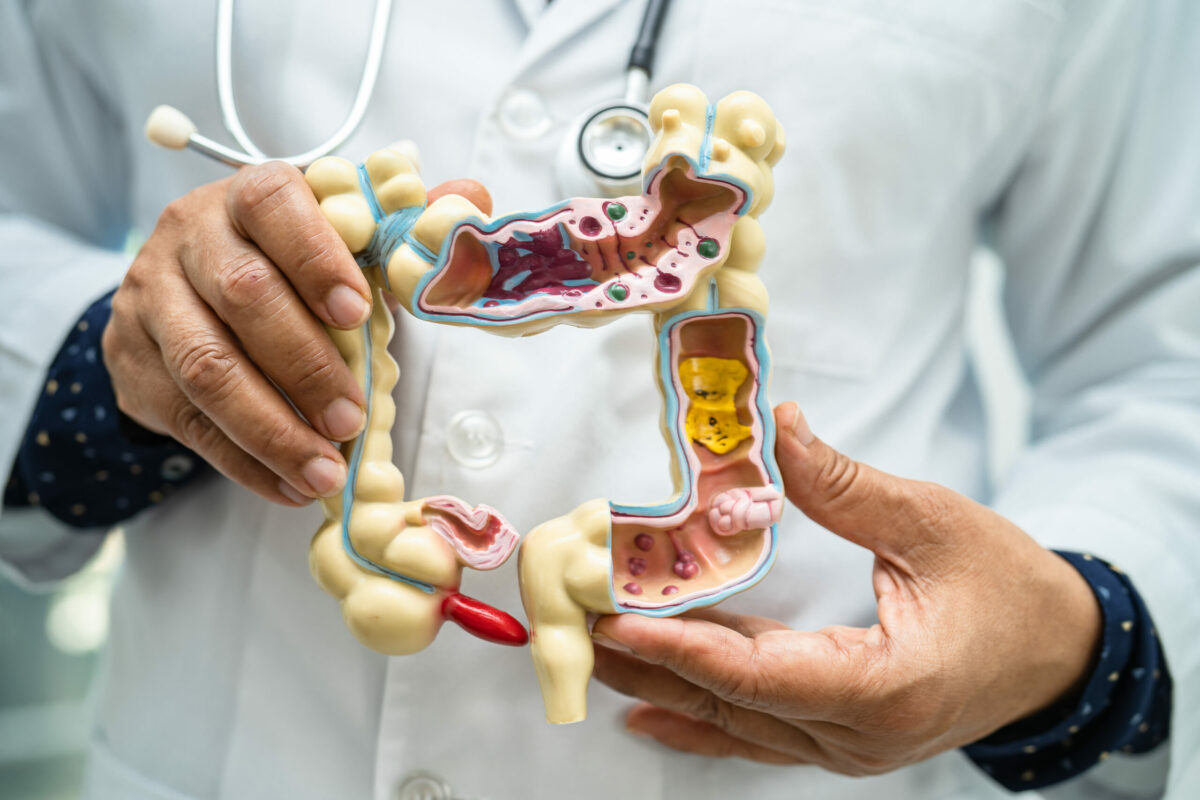The inflammation of the rectum is known as proctitis. A muscular tube that is connected to the colon is called the rectum. Through this tube passes stool out of the body. The most common symptoms of proctitis are rectal pain, bleeding, and discharge. A persistent need to have a bowel movement also can occur. While some people experience symptoms for short periods, sometimes they can become life-long (chronic).
This condition usually happens in people suffering from inflammatory bowel disease (Crohn’s disease or ulcerative colitis). Another factor that could provoke proctitis is sexually transmitted diseases (STDs). In addition, some people experience proctitis as an adverse reaction to radiation therapy used in the treatment of cancer.
Symptoms
Check below some common proctitis symptoms:
- Diarrhea
- Painful bowel movements
- The feeling of fullness in the rectum
- Rectal pain
- Mucus that passes through the rectum
- Bleeding
- Frequent or persistent need to have a bowel movement
It is advised to visit a doctor right away if any of the symptoms listed above appear.
Causes
There are different causes that contribute to or even cause proctitis. Check below some of them:
- Inflammatory bowel disease – Roughly 30% of people with proctitis have an inflammatory bowel disease such as ulcerative colitis.
- Infections – Sexually transmitted diseases (STDs) can spread in those who engage in anal intercourse. Thus, they are likely to develop proctitis. STDs that could provoke proctitis include gonorrhea, genital herpes, chlamydia, and others. Furthermore, infections linked with foodborne illness including shigella, salmonella, and campylobacter infections can provoke proctitis.
- Radiation therapy – This is a procedure usually prescribed by doctors in cancer treatment. For instance, if you experience prostate or rectum cancer, physicians may recommend this procedure. As a result, it can cause proctitis.
- Antibiotics – Some people may get a prescription for these medicines to treat a bacterial infection in the bowels. Therefore, antibiotics allow the Clostridium difficile bacteria to start growing in the rectum.
- Diversion proctitis – Sometimes, people who have colon surgery can develop this condition.
- Food protein-induced proctitis – Usually, happens in infants who drink cow’s milk- or soy-based formula.
- Eosinophilic proctitis – In such cases, proctitis occurs due to a build-up of a type of white blood cells (known as eosinophil) in the rectum lining. However, it appears in children younger than 2 years old only.
Risk Factors
Anyone can get this condition but the following factors increase your risk. Examples include:
- Unprotected sexual activity – Those who practice sex without protection are more prone to getting sexually transmitted diseases, especially if they have different sex partners.
- Inflammatory bowel disease (IBD) – People with IBD are at elevated risk of developing proctitis.
- Radiation therapy – Those who receive radiation therapy to treat cancer that happens directly at or near the rectum (including rectal, ovarian, or prostate cancer) are at higher risk of getting proctitis.
Complications
In case you do not treat this condition, it may lead to some unpleasant complications. Examples include:
- Anemia – This is a health condition in which a person does not have enough red blood cells. In such cases, it happens due to chronic bleeding from the rectum. The most common anemia symptoms include tiredness, dizziness, shortness of breath, headache, pale skin, and irritability.
- Ulcers – If you experience chronic rectum inflammation, it may lead to open sores also known as ulcers inside the rectum lining.
- Fistulas – This is a complication in which the ulcers extend throughout the intestinal wall, which provokes a fistula. It is an abnormal link that happens between several intestine parts or between the intestine and other organs (such as the bladder, vagina, and others).
If you suspect you have a proctitis complication, immediately contact your healthcare professional.
Is it Possible to Prevent Proctitis?
You can protect yourself against STDs or to abstain from sexual intercourse (especially anal sex). People who choose to have sexual intercourse should consider the following tips that can help to prevent STDs. Examples include:
- Limit sexual partners
- Use dental dams or condoms during sexual activity
- It is not recommended to engage in sexual intercourse with a person who has sores or discharge in the genital region.
However, if you are diagnosed with an STD, you should abstain from sex until you finish the treatment. Discuss with your healthcare professional about when you can have sex again.
Diagnosis
Healthcare providers usually perform the following tests to diagnose proctitis. Check below some examples:
- Stool test – This test helps to determine if the proctitis is provoked by a bacterial infection.
- Blood test – It is often done to determine blood loss or infections.
- Examination of the last part of the colon – This procedure involves a flexible lighted tube that helps to examine the last colon part (sigmoid) and the rectum. Additionally, during this test, doctors can get a tissue sample (biopsy) and send it to the laboratory.
- Examination of the colon – This procedure is known as colonoscopy and it allows your physician to examine the entire colon. It uses a thin, flexible, and lighted tube with a camera at the end.
- Sexually transmitted infections tests – These tests help your doctor to identify if you have a STI.
Treatment
Usually, doctors prescribe different treatment options for people with proctitis. It depends on the underlying cause, the severity of the condition, and other factors.
Proctitis Treatment Caused by an Infection
In such cases, physicians prescribe the following medicines. Examples include:
- Antibiotics – These medications (such as Doxycycline) are used to treat bacterial infections.
- Antivirals – In case your proctitis is provoked by a viral infection, doctors commonly prescribe one of this category of medicines (such as Acyclovir).
Proctitis Treatment Caused by Radiation Therapy
While mild cases of radiation proctitis do not need treatment, serious proctitis forms can provoke bleeding and severe pain which require treatment. Check below some treatment methods:
- Medicines – These include Sucralfate, Mesalamine, Sulfasalazine, and Metronidazole. Previous medicines help to reduce inflammation and lessen bleeding.
- Stool softeners – This treatment option can help to open up bowel obstructions.
- Procedures to get rid of damaged tissue – The following procedures help to lessen the symptoms and kill abnormal tissue (ablation). These include argon plasma coagulation (APC), cryoablation, electrocoagulation, and others.
Proctitis Treatment Caused by Inflammatory Bowel Disease
The following treatment goal is to reduce the rectum inflammation caused by Crohn’s disease or ulcerative colitis. Examples include:
- Medications – Physicians usually prescribe the following medicines to reduce inflammation. For example Mesalamine, Prednisone, Budesonide, Azathioprine, or Infliximab.
- Surgery – If you do not notice any improvements while using medicines, your doctor may advise surgery. This procedure involves the removal of a damaged part of the digestive tract.
Frequently Asked Questions
What is the most common cause of proctitis?
The primary cause of this condition is inflammatory bowel disease. Other frequent proctitis causes include sexually transmitted diseases (STDs) and radiation therapy.
When should I go to the emergency room (ER)?
In case you have mucus and bleeding in a bowel movement, severe pain, or diarrhea, you should immediately go to the nearest emergency room or call 911. For more details, talk with your doctor.
What are medicines often prescribed by doctors in proctitis treatment?
- Sucralfate
- Mesalamine
- Sulfasalazine
- Metronidazole
Never take any medication without a doctor’s recommendation because it may worsen the condition. If you have additional questions, ask your doctor.




